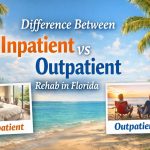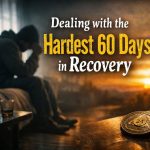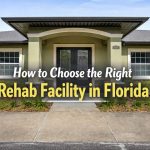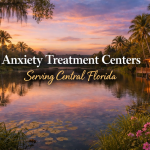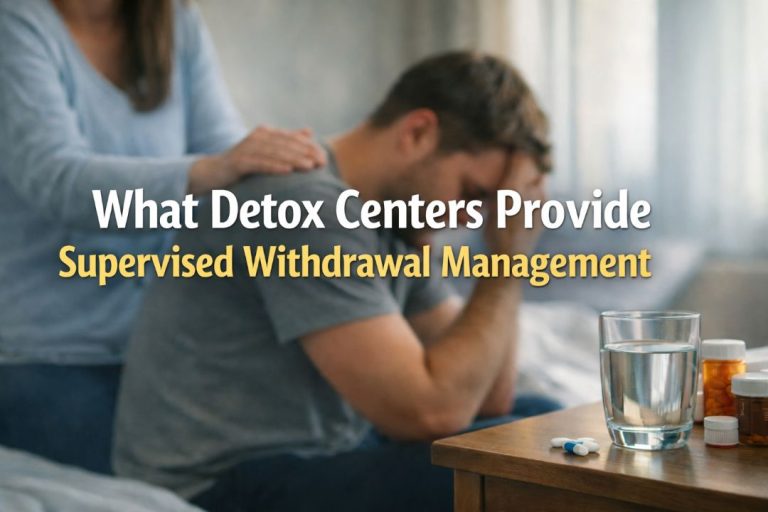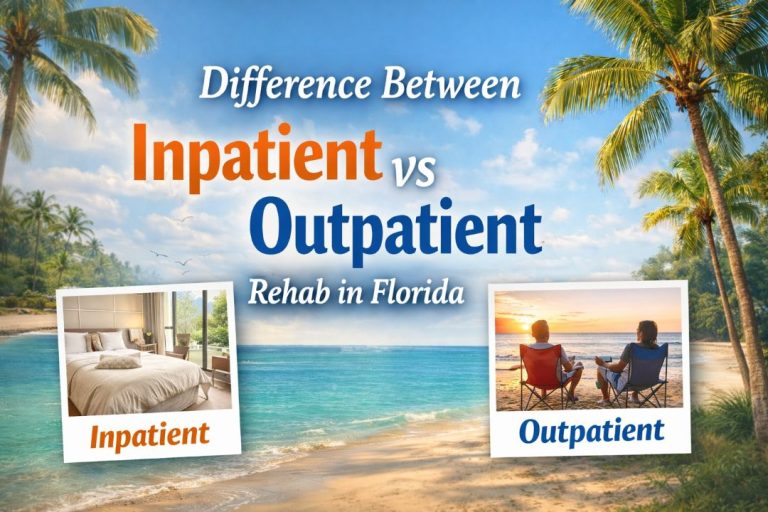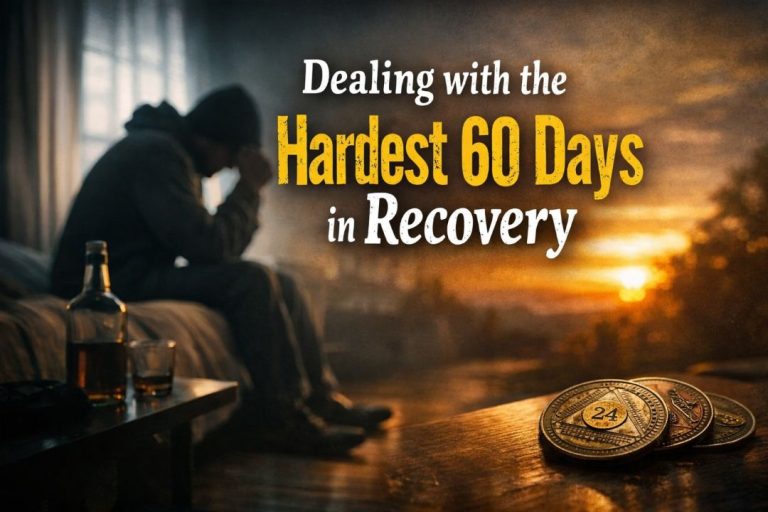Co-occurring disorder, also known as dual diagnosis, whereby a patient is diagnosed with both a mental disorder and a substance use disorder, is a model area of practice in behavioral health. Knowledge of these conditions and their interrelation fosters the approach to the treatment among individuals, families, and caregivers. This blog focuses on the features of dual diagnosis, its causes, its approaches to treating it, and the necessity of the concurrent treatment of both disorders for the best results.
What is Dual Diagnosis?
A dual diagnosis means a situation where a person has a mental illness in addition to a substance dependency problem like alcohol or drug abuse. These are considered dual disorders because they are interrelated; hence, when one occurs the other is likely to, worsen each other and they are also difficult to diagnose and treat individually.
Signs and Symptoms of Dual Diagnosis
Diagnosis of both conditions may not be very easy, especially because some symptoms may complement one another or may hide one another. Common signs include:
- Excessive reasons or emotional fluctuations.
- More substance use for reductions in mental health symptoms.
- Loss of interest in friends, family, or social events.
- Unable to focus or unable to finish daily chores.
- The presence of hopelessness or guilt most of the time.
- Failed attempts to stop using substances.
If not treated, dual diagnosis results in an increase in symptoms, relationship problems, and major health risks.
100% Confidential Support is Available 24/7
No matter what you’re going through, you’re not alone. Our dedicated team is here to provide a safe, judgment-free space where you can talk openly and honestly. Whether you need emotional support, resources, or just someone to listen.
We’re here for you—completely confidential and always respectful of your privacy. Call us today!
What is Addiction?
In general terms, addiction can be described as a state or disease that entails the compulsory intention to act in a certain way or to have a substance. This can have detrimental effects, which, if the said individual is not able to control himself/herself, can lead to unpleasant consequences.
Deland Treatment Solutions
Battling with Drug and Alcohol Addition? Remember, you are not alone and we are here to help you!
Signs and Symptoms of Addiction
Too often addiction creeps up on you and they are often not even ones you think would be inherently bad for you. Identifying the signal is significant for patients to look for a doctor’s assistance and begin the healing procedure.
Common Signs of Addiction:
- Changed Behaviors: Increased isolation, failure to meet their social and family responsibilities, and changes in their friendship pattern.
- Physical Changes: Reducing physical health, change in physical appearance, and sleep-wake cycle disruption.
- Psychological Changes: The symptoms mentioned include mood swings, increased irritability, and decreased ability to focus.
- Tolerance and Withdrawal: Requiring more of the substance to get the intended benefits or exhibiting withdrawal symptoms when intake is lessened or discontinued.
Common Mental Health Disorders Linked to Dual Diagnosis
Some specific psychiatric disorders are often associated with substance abuse disorders. These include: 
- Depression
A lot of people start taking alcohol or drugs to escape the painful feelings of depression such as sadness, tiredness, and hopelessness.
- Anxiety Disorders
There are allopathic drugs such as alcohol, benzodiazepines, or cannabis that are commonly employed for relief of the symptoms of anxiety but result in dependence.
- Bipolar Disorder
Substances may also be used in manic or depressive episodes to make them worsen, due to the self-treatment impulse.
- Post-traumatic Stress Disorder (PTSD)
PTSD results in flashbacks and the patient becomes emotionally disturbed. To cope with the disturbance, he turns to drug and alcohol abuse.
- Schizophrenia
The feelings caused by schizophrenia such as hallucinations and delusions, may lead a person towards using substances to suppress them.
How Addiction and Mental Health Are Connected
Research has shown that mental disorders and substance dependency have a kind of cycling effect since one can lead to the escalation of another. For example, a person with anxiety disorder may begin using alcohol to reduce stress and end up as an alcoholic. While short-term substance use can produce changes in the reward systems, which may lead to substance abuse disorders, longer substance use produces changes in the chemical reactions in the brain that, in turn, lead to mental health disorders. Key factors that link the two include:
- Thus, there may be such common predisposing factors as genetics or trauma.
- The effects of the substances the user takes to change the brain chemistry for a long time.
- Stress, unhealthy relationships, road traffic accidents, and violence in the community.
The Importance of Integrated Treatment for Dual Diagnosis
Dual diagnosis means the presence of both mental health and substance use disorder, meaning it takes combined treatment to treat such patients. Compensation adjustments do not address what has been lost and can increase the chance of going back to the same situation as before.
Benefits of Integrated Treatment:
- This entails treatment that treats all the root causes.
- Reasons include enhanced long-term elderly patient care and a decrease in relapse rates.
- Improved control of the separate symptoms.
- Integrated treatment typically involves:
- Counseling to help clients regain control of their medications for the mental disorder.
- Schematic interventions that include the use of CBT and DBT.
- Cohort-based groups are conducive to the needs of patients with dual diagnosis.
- Exercise, diet, and other changes to enhance general well-being.
Effective Therapies for Dual Diagnosis
Several evidence-based therapies can support individuals with dual diagnosis:
1. Cognitive Behavioral Therapy (CBT)
CBT enables a person to modify the cognitive processes that are used for both psychological and substance abuse disorders.
2. Dialectical Behavior Therapy (DBT)
Created for use in Borderline Personality Disorder, DBT is one of the most effective skills for learning to deal with escalated emotions and cravings.
3. Motivational Interviewing (MI)
Clients are thus intrinsically motivated to change their behaviors, which is a key characteristic of addiction.
4. Trauma-Informed Care
The treatment of the trauma is suggested, especially because it is commonly found to be the origin of both mental disorders and substance use disorders.
5. Group Therapy and Peer Support
Finding people with similar struggles as ours enhances support and makes us more responsible.
Role of Medication in Dual Diagnosis Treatment
Even with previously mentioned measures, medications are of great importance in controlling the symptoms. For example:
- Anti-depressants for depression or anxiety.
- Pharmacotherapy of bipolar disorder, mood stabilizers.
- Schizophrenia—antipsychotics.
- Some prescribable medications, such as naltrexone or buprenorphine, decrease the cravings as well as withdrawal symptoms.
- Drugs may work best when taken with therapy and other interventions in dealing with the condition.
Challenges in Treating Dual Diagnosis
Several hurdles complicate the treatment of dual diagnosis, such as:
- Mental illness and substance use disorder are two significant issues that continue to be shameful, many times failure to differentiate the symptoms of one disorder from those of the other.
- Restricted numbers of integrated care amenities accessible to them.
- Refusal to undergo the treatment as a result of denial or the fear of withdrawal.
- Nevertheless, getting assistance from professionals who understand both problems is likely to boost the benefits achieved.
Preventing Dual Diagnosis While not all cases of dual diagnosis are preventable, certain strategies can reduce the risk:
- Fostering for child and youth mental health.
- Normal ways, such as going for a jog, or practicing meditation, among others.
- Abstinence to prevent or reduce stress or to cope with affective states.
- The lack of a proper support system.
- Raising awareness of dual diagnosis and its symptoms to oneself and dear ones.
Seeking Help for Dual Diagnosis
It is for this reason that recovery from this disorder is manageable, provided the right support and proper treatment are sought. Look for facilities specializing in dual diagnosis, offering comprehensive services like:
- Specialized detoxification for people with dual diagnosis.
- Plans that are gotten from individual phases and required treatment by the patients.
- The set continuation and follow-up plan, especially the relapse prevention plan.
Often to those who or a loved one is in need or is suffering, seeking the help of a professional is a beginning to a new life.  Co-occurring disorders bring specific difficulties but, at the same time, they point to a chance for people to change their lives for the better. Through the process of providing dual diagnosis treatment, it is possible to restore an individual’s life and help him/her to be free from mental health disorders and addictions at the same time. If you are struggling with a dual diagnosis, the important message here is don’t give up because there is hope for a better tomorrow. It’s time for the first step on the journey toward a healthier and happier you today.
Co-occurring disorders bring specific difficulties but, at the same time, they point to a chance for people to change their lives for the better. Through the process of providing dual diagnosis treatment, it is possible to restore an individual’s life and help him/her to be free from mental health disorders and addictions at the same time. If you are struggling with a dual diagnosis, the important message here is don’t give up because there is hope for a better tomorrow. It’s time for the first step on the journey toward a healthier and happier you today.







